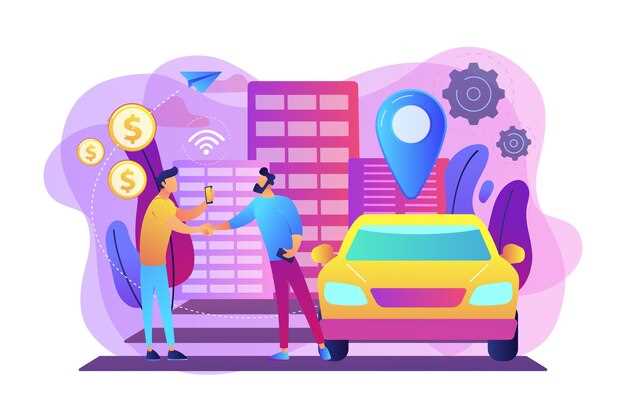
In recent years, the concept of car sharing has gained significant traction as a viable alternative to traditional car ownership. This shift reflects broader changes in urban planning and consumer behavior, with a growing emphasis on sustainable mobility solutions. As cities expand and populations grow, the challenges associated with car ownership, such as maintenance costs, parking shortages, and environmental impact, have prompted many to reconsider their options.
The future of mobility is increasingly leaning towards shared services that promise not only convenience but also efficiency. The rise of technology-driven platforms allows users to access vehicles on-demand, reducing the need for personal ownership. This evolution suggests a transformative approach to transportation, one that prioritizes collective usage over individual ownership, thereby contributing to a more sustainable urban environment.
As we navigate this transition, important questions arise: Will car sharing replace traditional ownership completely? How will these trends shape urban infrastructure and public policy? Understanding the implications of these choices is crucial for individuals and communities alike as we strive for a future that balances convenience, sustainability, and responsible mobility.
Car Sharing or Ownership: What is the Future Choice?

As urban environments evolve, the debate between car sharing and ownership intensifies. Car sharing services are gaining momentum, offering users flexibility and reducing the need for private car ownership. This shift towards shared mobility reflects changing consumer preferences driven by economic factors and environmental awareness.
Car sharing allows individuals access to vehicles without the burdens associated with ownership, such as maintenance, insurance, and depreciation. Users can conveniently book a car for short periods, making it an appealing option for those who do not require constant vehicle access. This model promotes a more efficient use of resources, as fewer cars are needed to meet the population’s mobility demands.
Moreover, car sharing can lead to a decrease in traffic congestion and lower carbon emissions. Fewer cars on the road mean reduced pollution levels, contributing to a healthier urban environment. As cities strive to meet sustainability goals, shared mobility solutions are increasingly seen as a viable alternative to traditional car ownership.
Ownership, on the other hand, still holds value for many individuals who prioritize convenience, control, and personal preferences. Having a dedicated vehicle can be beneficial for families, frequent travelers, or those living in areas with limited access to shared services. The choice between ownership and sharing ultimately depends on lifestyle, individual needs, and the evolving landscape of transportation options.
The future choice between car sharing and ownership will likely continue to fluctuate as technology advances and urban infrastructure changes. Additionally, enhanced connectivity and autonomous vehicle developments could further blur the lines between these two paradigms. The evolution of mobility will ultimately be shaped by a combination of consumer choices, technological innovations, and societal trends.
Evaluating Cost Benefits of Car Sharing vs. Ownership

In the evolving landscape of urban mobility, the decision between car sharing and ownership has significant financial implications. Car ownership involves upfront costs such as purchasing the vehicle, registration fees, and insurance, along with ongoing expenses for maintenance, fuel, and parking. These costs can add up quickly, making ownership a heavy financial burden for many individuals.
On the other hand, car sharing services provide a flexible alternative that can be more economical for those who do not require a vehicle on a daily basis. Users only pay for the time they actually use the vehicle, which eliminates many of the fixed costs associated with ownership. This model is especially advantageous for city dwellers who rely on public transportation for daily commuting and only need occasional access to a car for specific trips.
Additionally, car sharing often includes insurance and maintenance as part of the service, which reduces the hassle and expense of unexpected costs that traditionally come with ownership. As cities continue to embrace sustainable transportation solutions, the infrastructure for car sharing is also improving, making it a more viable option for the future.
However, individuals who frequently use a car for commuting or family needs may find ownership more cost-effective in the long run. The key is understanding personal usage patterns and calculating the total cost of both options. Evaluating these costs can help individuals make informed decisions about their mobility choices and determine which option aligns best with their lifestyle and budget.
The Role of Technology in Shaping Future Mobility Options
The rapid advancement of technology is fundamentally transforming the landscape of transportation and mobility. As urban populations grow and environmental concerns become more pressing, innovative solutions are emerging to address these challenges.
Connectivity plays a pivotal role in this transformation. With the rise of the Internet of Things (IoT), vehicles are increasingly equipped with sensors and connectivity features that allow for real-time data exchange. This connectivity facilitates efficient sharing options, enabling users to locate, reserve, and access vehicles seamlessly through mobile applications. As a result, sharing becomes more convenient and appealing, particularly in densely populated areas.
Autonomous vehicles are another technological breakthrough that promises to redefine mobility. These self-driving cars can enhance safety and reduce traffic congestion, making shared mobility an even more viable option. By minimizing human error and optimizing driving patterns, autonomous vehicles can improve the efficiency of shared transportation systems, encouraging more people to embrace car-sharing models over ownership.
Electrification of vehicles is also a significant factor in the future of mobility. As electric vehicles (EVs) become more widely adopted, they offer a sustainable alternative to traditional gasoline-powered cars. Car-sharing services that incorporate EVs can reduce greenhouse gas emissions, making sharing an environmentally friendly choice. This shift toward electrification aligns with the global push toward cleaner transportation options, reinforcing the appeal of shared mobility.
Advanced mobility platforms are on the rise, integrating various modes of transportation into a single user-friendly interface. These platforms simplify the process of planning and booking trips that involve multiple transportation types, such as buses, trams, bicycles, and shared cars. By providing seamless access to diverse mobility options, technology empowers users to choose the most efficient and cost-effective means of travel, fostering a culture of sharing over ownership.
In conclusion, technological advancements are reshaping the future of mobility. By enhancing connectivity, enabling autonomous driving, promoting electrification, and creating comprehensive mobility platforms, technology drives the trend toward shared transportation solutions. As these innovations continue to evolve, they will play a crucial role in determining the mobility choices we make in the future.
Environmental Impact: Car Sharing vs. Individual Vehicle Use
The environmental consequences of transportation choices are increasingly critical in the discussion about the future of mobility. Two primary options are car sharing and individual vehicle ownership, each presenting distinct impacts on the ecosystem.
Car sharing is gaining popularity as a sustainable alternative to traditional car ownership. The potential benefits include:
- Reduced Carbon Emissions: Car sharing often leads to fewer cars on the road, which can significantly lower greenhouse gas emissions. Fewer vehicles translate to less congestion and reduced pollution.
- Efficient Use of Resources: Shared vehicles tend to be newer and more energy-efficient, which further decreases environmental harm.
- Encouragement of Public Transport: Car sharing supports and complements public transport systems by offering last-mile solutions, reducing reliance on personal vehicles.
In contrast, individual vehicle ownership poses several environmental challenges:
- Increased Pollution: The more cars there are, the higher the emissions of CO2 and harmful pollutants, contributing to poor air quality and climate change.
- Resource Intensity: The production and maintenance of vehicles demand considerable natural resources, from metals to fossil fuels, contributing to ecological degradation.
- Urban Sprawl: Personal vehicle dependence often encourages urban sprawl, leading to habitat destruction and increased land use for roads and parking.
As cities evolve and the future of mobility is shaped, the shift towards car sharing can play a pivotal role in reducing the overall environmental impact of transportation. By promoting this model, we can foster a more sustainable approach to urban mobility, aligning with global efforts to combat climate change.
